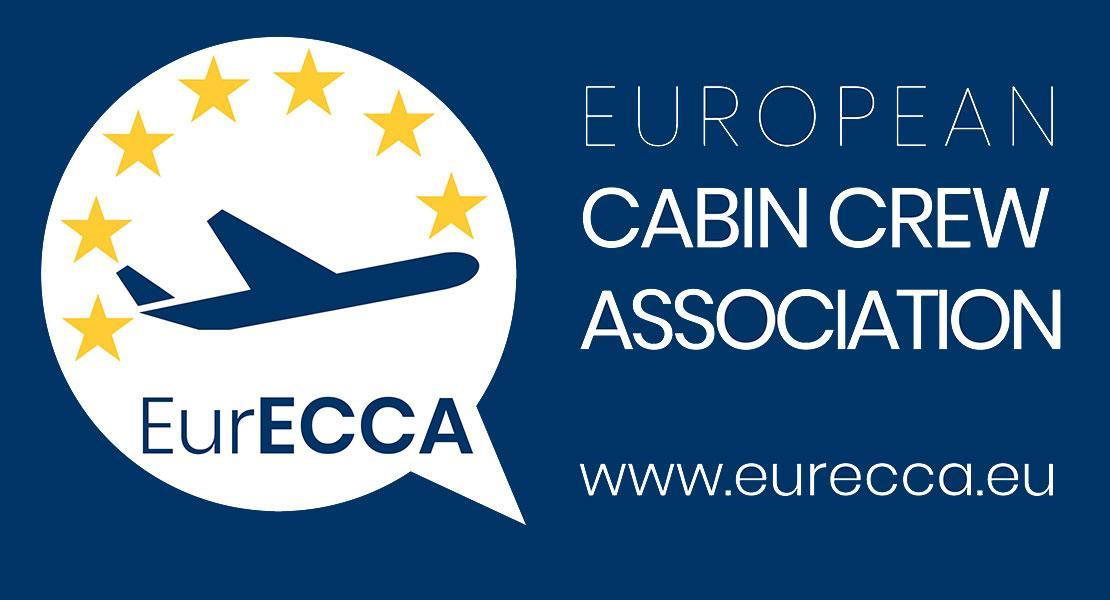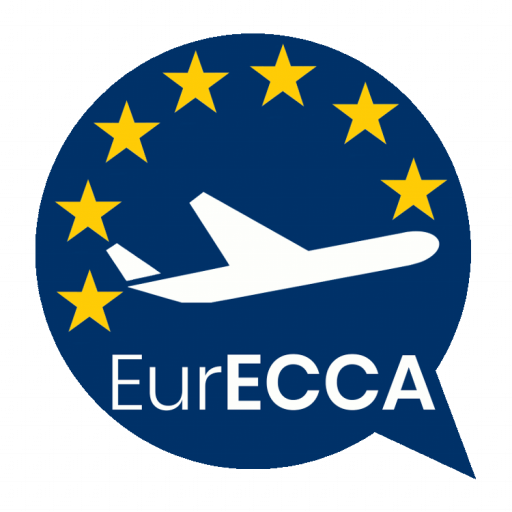EurECCA welcomes the Commission’s call for consultation to assess the impact of the COVID-19 pandemic on the aviation sector as part of the review process of Regulation (EC) 1008/2008.
The health crisis has highlighted the fragility of the aviation sector in particular the lack of social protection for the aviation workers with a consequent significant risk to the stability and ability of the aviation industry itself to recover from such an event with a consequent profound deterioration in socio-economic factors and working conditions especially for the socially weaker workers such as the cabin crew.
The European Commission has put a lot of efforts in the attempt to coordinate the Member States, especially during the pandemic crisis, however the lack of common rules and oversight has led to different measures in different member states and this is the case also when it comes to implement all social rules.
There is the urgency and necessity of including appropriate and proportionate effective measures to face the current recovery and to be prepared in case of future crisis.
EurECCA believes that within the impact assessment of the Air Services Regulation it would be beneficial to consider the implementation of a workplace directive as well as the revision of the working time directive for air crew, which currently lacks of occupational health and safety oversight.
The lack of specific EU directives covering OH&S for aviation workers at EU level is contributing to expose all of them, especially the cabin crew that we proudly represent, who have to work within some soft rules/recommendations or just under company risk assessments generally with no oversight.
The ongoing lack of specific directive covering the occupational health and safety of the aviation workers is contrary to one of the basic principle of the Treaty on the Functioning of the European Union -Article 153- which establishes that the EU shall support and complement the activities of the Member States and encourage legal acts such as Directives and minimum requirements for gradual implementation in the field of safety and health at work for all type of workplaces.
When it comes to Airplanes, however there is no workplace directive yet and almost all Member States haven’t laid down minimum requirements for safety and health on the airplanes and consequently oversight is still almost impossible.
The European Commission’s new regulation must take into account high social standards as set out in its Communication of 1 March 2019 in order to ensure the principles of socially responsible behavior and thus encourage airlines to respect the same social standards avoiding unfair competition and social dumping in Europe.
A/ Operational Base
For EurECCA, this new regulation must also introduce a legal framework including a definition of the « Operational Base » which only refers to the free movement of establishment defined by Article 54 of the EU Treaty as:
Companies or firms formed in accordance with the law of a Member State and having their registered office, central administration or principal place of business within the Union shall, for the purposes of this Chapter, be treated in the same way as natural persons who are nationals of Member States.
In this regulation, « Operational Base » definition must also be linked with a legal clarification relating to a secondary place of establishment, as the free movement of establishment allows that the main activities are not performed in the State in which it has its registered office.
Moreover Directive 2006/123 highlights the importance of making such difference in recital §77: Where an operator travels to another Member State to exercise a service activity there, a distinction should be made between situations covered by the freedom of establishment and those covered, due to the temporary nature of the activities concerned, by the free movement of services. As regards the distinction between the freedom of establishment and the free movement of services, according to the case law of the Court of Justice the key element is whether or not the operator is established in the Member State where it provides the service concerned. If the operator is established in the Member State where it provides its services, it should come under the scope of application of the freedom of establishment. If, by contrast, the operator is not established in the Member State where the service is provided, its activities should be covered by the free movement of services.”
This legal framework will put an end to any « legislation shopping » and « fiscal optimisation » as regards national applicable legislation and national legal competency. As a consequence, this will have the benefit to avoid social dumping and unfair competition.
B/ Wet-leasing and ACMI
EurECCA asks for a revision of the Wet-leasing and ACMI introducing clarification and binding restrictions as this practice translates into lower terms and conditions for aircrew across the industry and gives a boost to atypical employment schemes.
This development has – naturally – caught legislators off guard. EU Regulation 1008/2008 Article 13 prescribes that intra-EU wet-leases can be used without a limit in time as long as they are deemed safe. But there are neither necessary related social protections for employees, nor further considerations of the potential safety aspects of such semi-permanent use of wet-lease.
While indeed both the lessor (i.e. operator providing aircraft & crew) and the lessee (i.e. operator receiving aircraft & crew) are subject to EU/EASA rules, in practice, implementation, interpretation and enforcement vary from one EU Member State to another. The ability to oversee and scrutinize such complex operations also differs significantly from country to country, not least due to an increasing lack of resources in certain national aviation authorities. Particularly worrying is the ability of smaller authorities to oversee complex operations with long and unclear subcontracting chains (including big ACMI operators subcontracting operations themselves to smaller ones).
EurECCA also asks for a clarification when it comes to justify the use of wet leasing and ACMI agreements in relation with the EU-UK Trade and cooperation agreement as long as it affects the protection of the public interest, in relation to social policy objectives.
Trade and Cooperation Agreement between the European Union and the European Atomic Energy Community, of the one part, and the United Kingdom of Great Britain and Northern Ireland, of the other part.
ARTICLE 429 Commercial operations :
…
7. As regards leasing:
(a) the Parties shall grant each other the right for their air carriers to provide air transport services in accordance with Article 419 in all the following ways:
(i) using aircraft leased without crew from any lessor;
(ii) in the case of air carriers of the United Kingdom, using aircraft leased with crew from other air carriers of the Parties;
(iii) in the case of air carriers of the Union, using aircraft leased with crew from other air carriers of the Union;
(iv) using aircraft leased with crew from air carriers other than those referred to in points (ii) and (iii), respectively, provided that the leasing is justified on the basis of exceptional needs, seasonal capacity needs or operational difficulties of the lessee, and the leasing does not exceed the duration which is strictly necessary to fulfil those needs or overcome those difficulties;
(b) the Parties may require leasing arrangements to be approved by their competent authorities for the purpose of verifying compliance with the conditions set out in this paragraph and with the applicable safety and security requirements;
(c) however, where a Party requires such approval, it shall endeavour to expedite the approval procedures and minimise the administrative burden on the air carriers concerned;
(d) the provisions of this paragraph are without prejudice to the laws and regulations of a Party as regards the leasing of aircraft by air carriers of that Party.
According to EurECCA, these restrictions must be clarified to protect public health and social policy objectives.
C/ Cross-border coordination
Enforcement and cross-border coordination should be in the heart of the revised regulation. It is imperative that authorities work together in order to ensure that inspections are carried out also for carriers that are under the jurisdiction of one Member State, but mostly operating into, or within, another Member State. EurECCA believes that the European Labour Authority could play a crucial role in coordinating and supporting the enforcement of EU social law in the aviation sector.
D/ Ownership and Control (O&C)
The Commission also considers revising the current ownership and control (O&C) rules. This revision should ensure that it truly analyses all potential effects that the different policy options under consideration on O&C rules might have. It is essential that the rules continue to ensure the competitiveness of European airlines – also with regard to unfair competition by subsidized non-EU airlines – and the connectivity and employment that these airlines provide European society with.
E/ Atypical forms of employment
Atypical forms of employment as pay to fly, temporary agency employment, self-employment and bogus self-employment, zero-hour contracts must also be banned as it endangers flight safety operations as described by EASA in its guide called “Practical Guide New Business Models Hazards Mgt” published in August 2017 in which it underlines the links and the risks between socioeconomic aspects of such aircrew employment and flight safety.

